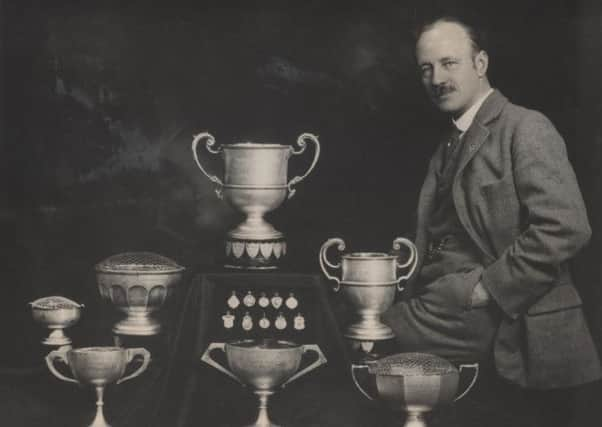Mystery ofeBay medals is solved


John Hirst was awarded the 1914-1915 star, the British War Medal and the Victory Medal.
Reader Frank Pybus bought them on eBay after recognising the name and a mention of Cleckheaton.
Advertisement
Hide AdAdvertisement
Hide AdNow John’s son, also called John Hirst, has contacted the guardian to say the medals were stolen from his house in 1948, along with a gold dagger presented to his father by the chief of an Egyptian tribe.
Mr Hirst, who followed in his father’s footsteps as Guardian editor, said: “We believe the medals were stolen from our house.
“When he was in Egypt after the war he was presented with a gold dagger by the king of the Hedjas. He must have done some service for him.
“The dagger was stolen at the same time as the medals. It was a shame.”
Advertisement
Hide AdAdvertisement
Hide AdMr Hirst said his father joined up as a private in the West Riding regiment, before rising through the ranks to officer, when he was transferred to the Royal Flying Corps. He became an observer and was promoted to observer and gunner.
He was then promoted to pilot and spent the rest of his service career in the flying corps.
Mr Hirst said: “He had to throw bombs out by hand over the edge of the plane. Once, he had engine trouble and had to land in a field and tinker with the engine. He didn’t have enough power to set off, so he had to taxi back to the airfield on the roads. There were horses bolting in all directions.”
He said his father had been working as a reporter at the Spenborough Guardian and was in his 30s when he joined the army.
Advertisement
Hide AdAdvertisement
Hide AdHe said: “After the war her went to Egypt and spent two years there; he wanted to make it his career.
“He was offered the position of Lieutenant Colonel if he stayed on, but his father, my grandfather, offered him a partnership in the Spenborough Guardian, so he came back in 1919.
“He didn’t like talking about the war because of all the horrible things he had seen.”
Mr Hirst said his father had been a keen angler, winning many trophies, and had invented a fishing rod.
Advertisement
Hide AdAdvertisement
Hide AdHe said: “It was called the spider web rod; it looked like an electricity pylon with strings holding bits together. The idea was to cast further out into the river without having the delay with striking. When he invented the rod he got into all the papers.
“He spent all his working life at the Guardian, and was still working when he died in 1963 aged 75.”
n Do you have a family World War I story to tell? Contact Lauren Ballinger on 01924 487145 or at [email protected].